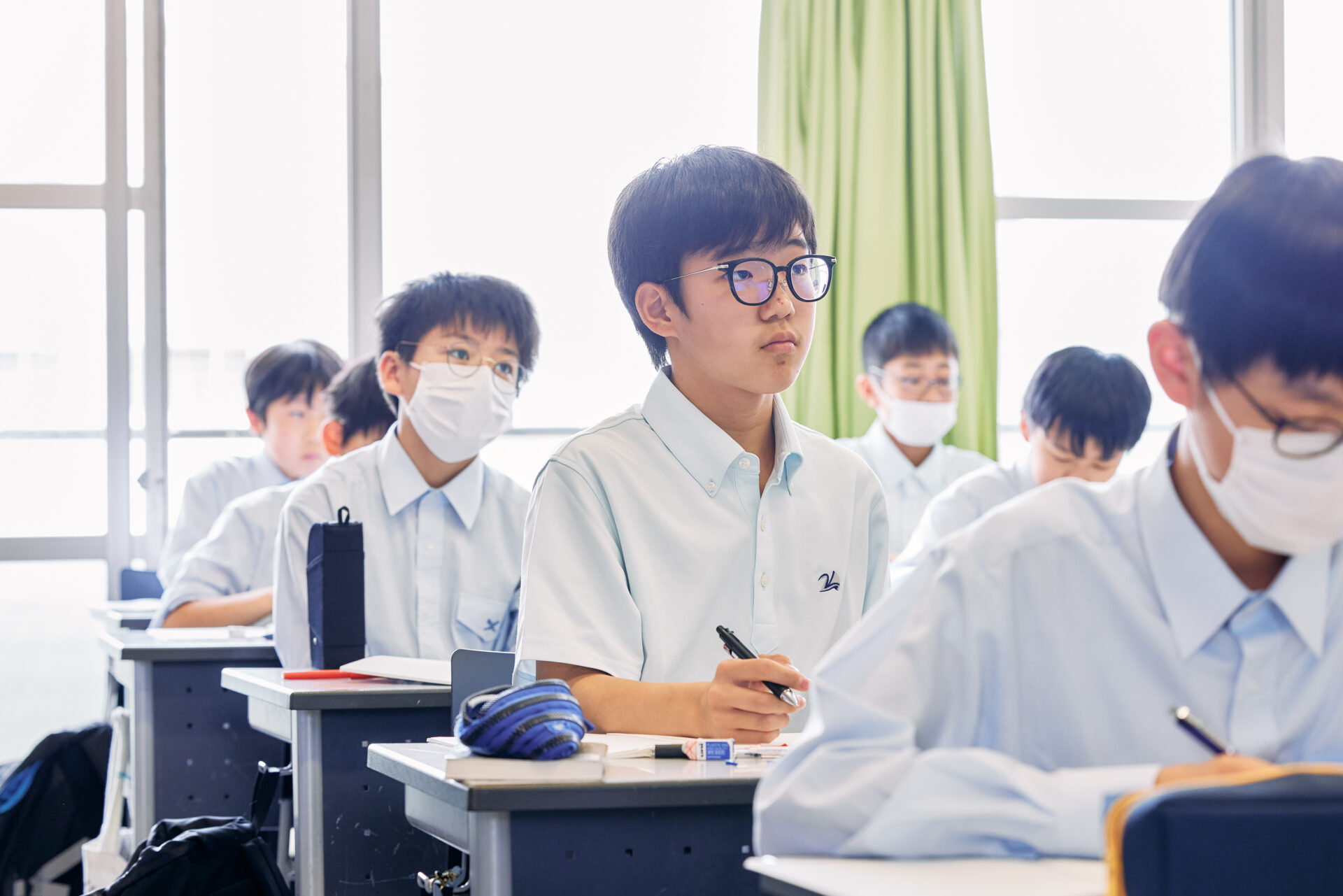EDUCATION

Curriculum features
- In the three junior high school subjects of English, mathematics and Japanese, sufficient time is taken to develop lessons with substantial content and to thoroughly consolidate basic academic skills.
- In science and social studies, the curriculum is organised to enable efficient learning throughout the six years.
- In Sr.3, lessons are centred on exercises in line with university entrance examinations.
- In Sr.2 and Sr.3, students can choose subjects according to their ambitions.
- The school offers unique experiential programmes in physical education, arts, moral education and special activities to cultivate physical fitness and emotional development, as well as in technology, home economics and information, which are closely related to daily life.

Rational and quality study programmes
The pillars of Zushi Kaisei’s subject education are teaching and home study.
Taking advantage of the characteristics of integrated junior and senior high school education over a six-year period, the school has developed a learning programme divided into three stages every two years. The first and second years of junior high school are positioned as ‘establishing basic academic skills’, the third year of junior high school and the first year of senior high school as ‘building awareness and motivation for university entrance’, and the second and third years of senior high school as ‘a period of preparation for the university entrance examination of your choice’, aiming to improve basic academic skills and the ability to continue learning both in school classes and through home study.
Teaching – To motivate students to learn.
They should listen carefully to the teacher’s explanations and take notes, apply the knowledge they have acquired to solve various problems, experiment in groups with their peers and debate opinions on a single topic. They also present and perform what they have learnt.
Zushi Kaisei classes are based on the acquisition of knowledge, but also provide students with opportunities to deepen their own thinking and express themselves, in order to nurture students with a strong desire to learn. Students develop their comprehension, thinking and expression skills through exercises and various hands-on activities inside and outside the school, as well as one-way lectures from the teacher, and develop their comprehensive academic skills.
Periodic examinations are held four times a year (once in the second semester of the third year of high school) to measure the level of understanding and achievement in classes. In addition, the ‘Academic Achievement Survey’ is conducted at appropriate times to assess the level of basic academic skills of junior high school students, and various mock examinations are held to determine the status of students’ academic ability in preparation for university entrance.
Home study – to ensure learning
The lessons are taught by subject teachers and are based on in-depth specialist knowledge, so the content becomes more and more advanced as the students move up through the grades. Therefore, it is necessary to revisit what has been learnt in class on the same day. At Zushi Kaisei, we consider relearning at home to be a very important autonomous and self-motivated activity.
To help students learn at home, Zushi Kaisei provides junior high school students with a ‘Study Guide’, a collection of guidance notes explaining how to study each subject. The Study Guide is designed as a notebook in which students can make daily study plans and reflect on their efforts, so that they can develop their study self-management skills under the guidance of their homeroom teachers and establish the habit of self-learning while still in junior high school.
‘Remedial training’ and ‘courses’
While it is desirable to ensure that both classes and home study function well in this way to improve academic performance, differences in mastery can occur. Zushi Kaisei offers supplementary tuition during the summer, winter and spring holidays for students who do not fully understand the content of their classes (supplementary tuition may also be offered after regular examinations, if necessary).
Zushi Kaisei also makes use of the characteristics of its integrated six-year education system to provide a curriculum that enables students to complete their junior high school studies in English, mathematics and Japanese by the end of their second year of junior high school, so that in their third year of high school they can practice questions for the university entrance examinations. In the second and third years of high school, there is a ‘course’ for those who wish to take it, which is designed to prepare students for university entrance examinations. Courses can be held throughout the year or during long holidays.
